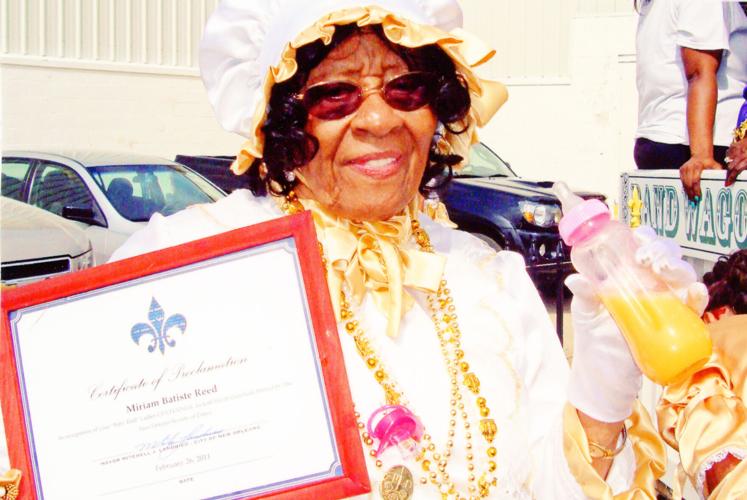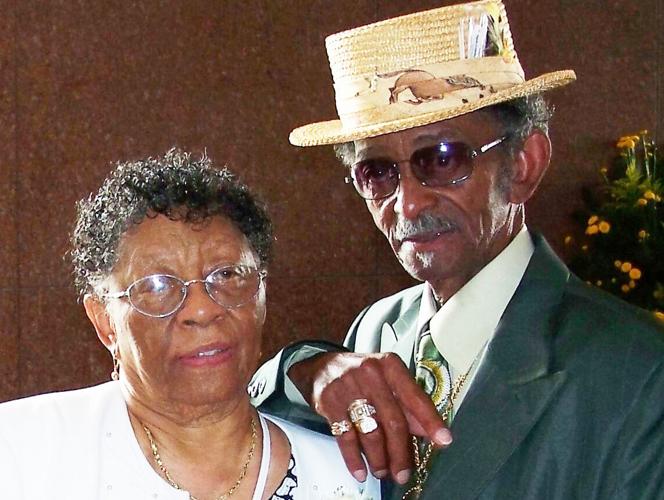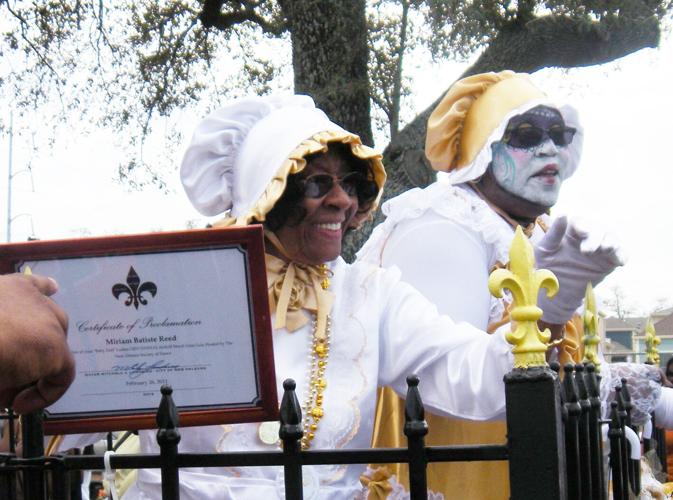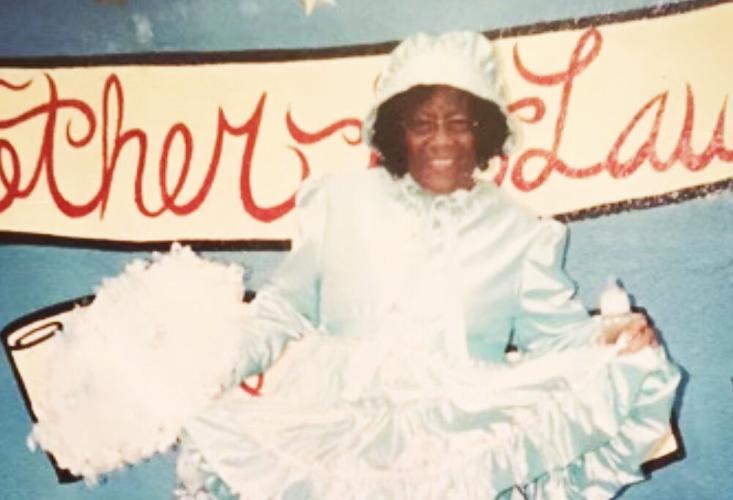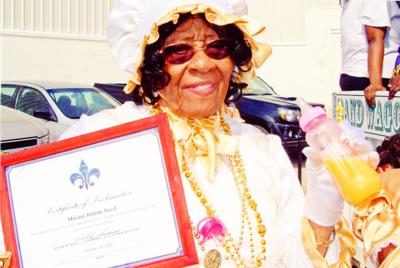In New Orleans Mardi Gras culture, Miriam Batiste Reed was an important bridge between generations.
She began masking as a Baby Doll with her mother, probably back in the 1940s. Fifty years later, when the custom had almost been forgotten, she served as an authentic model for its revival.
Reed died on June 3 at her home in Newport News, Virginia. She was 97. Her daughter Darlene Reed Roberts said she suffered from Alzheimer’s disease, but in recent years was still able to revel in the jazz music of her youth by Louis Armstrong and others.
Reed was from a big family that lived on St. Philip Street in the Treme. She had 11 siblings, including her baby brother, the late "Uncle" Lionel Batiste, an eternal star of the street music scene who died in 2012. Her mother, Alma Trepagnier Batiste, was leader of the Golden Slipper Club, a group of Mardi Gras Baby Dolls that began marching in 1930.

Miriam Batiste Reed with brother 'Uncle' Lionel Batiste
Baby Dolls are one of those only-in-New Orleans things. The women wear coquettish costumes, including Sunday hats, shimmering short dresses, frilly socks, Mary Janes and glimpsable bloomers. They twirl summer sun umbrellas, toy with lollipops and sometimes sip from baby bottles as they sashay alluringly through Carnival crowds.
Interviewed for Royce Osborn’s 2003 documentary film “All on a Mardi Gras Day,” Reed described her Baby Dolls experience like so: “Everything was glossy satin, yellow satin one year, red satin another year.”
“We would parade from one house to another,” she said, eventually setting out for Claiborne Avenue, the heart of Black Carnival in the Crescent City, where “the crowds just got bigger and bigger and bigger.”
According to Kim Vaz-Deville, author of the book “The 'Baby Dolls': Breaking the Race and Gender Barriers of the New Orleans Mardi Gras Tradition,” there are multiple legends about the origins of the Baby Dolls custom. Vaz-Deville said that Reed believed her mother invented the practice. "She was an early originator and it was so much fun that other women picked it up, all throughout the city," Vaz-Deville said.
In any case, the style spread, and eventually Baby Dolls were a recognizable Mardi Gras icon, alongside Black masking Indians and Zulu warriors.

Baby Doll Miriam Batiste Reed (left)demonstrates the proper 'strutting and attitude.'
Reed was the ideal member of a Carnival costuming club, a professional seamstress who made a living at one stage of life sewing uniforms for the U.S. Navy. Her daughter said she sewed wedding clothes and other designs as well as Baby Doll costumes.
Reed also loved to cook. The big Batiste family had a sort of Carnival clubhouse on Orleans Avenue near Roman Street, where everyone gathered for parades. It was called the “Happy House,” and Reed was often in the kitchen making sure the partiers were fed.
But Reed did not spend her whole life in New Orleans. After World War II, Miriam married Walter Reed Sr., whose 22-year Air Force career took the couple around the world, from England to the Philippines to Morocco. Her daughter said that the Reeds returned to New Orleans for Carnival whenever they could, and when that wasn’t possible, friends mailed her mother Zulu coconuts and other parade throws to help her feel connected.

Baby Doll Miriam Batiste Reed outside of the Mother-in-Law Lounge.
By the 1990s, the Baby Doll tradition was slipping away, but happily there was soon a revival. When the late Antoinette K-Doe, wife of the R&B star Ernie K-Doe, and friends sought to reestablish a Baby Doll group in the early 2000s, “they called on Ms. Miriam, as Reed was known, to learn the history and costuming practices,” according to Vaz-Deville.
“She demonstrated the proper strutting and attitude,” she said.
Vaz-Deville, a Xavier University professor, said the Baby Doll custom was a way for women to have fun and “be free to be your most authentic self,” even during the deprivation of the Great Depression and the discrimination of the Jim Crow era.
Reed was “the link between early 20th-century Carnival and current practices.”

In 2012, Baby Doll Miriam Batiste Reed road in the Zulu parade and received a proclamation from the mayor
In 2012, Reed made her final Mardi Gras appearance, when she rode on a special float in the Zulu parade as a guest of the New Orleans Society of Dance. She was presented with a proclamation from Mayor Mitch Landrieu on the occasion.
Reed is survived by her son, Walter Reed Jr. of Atlanta, and daughters Valerie Reed of Atlanta and Darlene Reed Roberts of Newport News, Virginia.
A visitation will be held from 8:30 a.m. to 10 a.m. on Saturday (June 17) at Charbonnet Funeral Home, 1615 St. Philip St. There will be a private service followed by a traditional jazz funeral procession. Reed's remains will ride in a horse-drawn carriage “fit for a queen,” her daughter said. Baby Dolls from across the city are expected to attend. Reed’s favorite color was pink.

